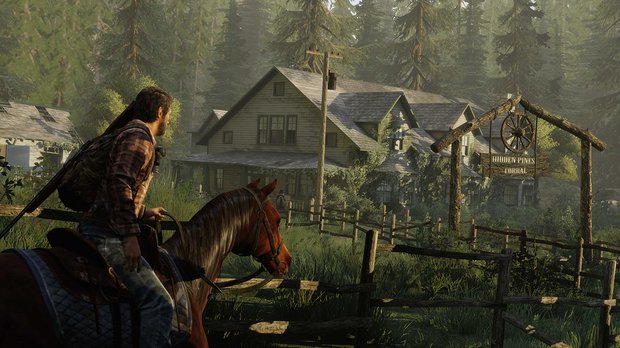In defence of terrible games
This is me telling you to ignore every buyer-beware sentiment we write the next time you see a sub-2.5 review appear on the site. Instead, put that collapsing shambles of half-baked ideas and outdated genre tropes at the very top of your shopping list. You’ll thank me in the end.
One of the considerable perks of writing about games for a living is that you get to sample a lot of the good ones during office hours. However, having to also play the Leisure Suit Larry: Box Office Busts and the Fast & Furious: Showdowns of this world initially puts a damper on that rookie enthusiasm. You got into the job to enjoy eight hours of Skyrim while on the clock, but now you’re stuck with a chauvinist puzzler whose frat party wisecracks corrode your soul.

No, I’m not asking for sympathy, and I haven’t forgotten that maverick statement I made earlier. It’ll all come together, just watch: after spending some time with games so inept they couldn’t even tie their own shoelaces, you load up something of The Last of Us’ calibre and it’s like Morpheus just gave you the red pill. You notice all the inconsequential details, like how its minimal, graceful UI always shows you exactly the information you need without intruding on the drama unfolding. You know this, because you’ve played the Game of Thrones RPG, and so understand how badly the simple flow of on-screen info can go horribly wrong.
Spending time wandering the graveyard of conceptually flawed, mechanically ruined and artistically feckless video games gives you a newfound appreciation of good sound mixes, thoughtful control layouts and well-lit muzzle flashes, as well as the bigger brushstrokes – the visuals, world-building, characterisation and route signposting. Because we’re naturally inclined to only play the good games, we’re also naturally inclined to take many of the things that make them good for granted.

That leads to thinking such as: “Bioshock Infinite was terrible, because within that unbelievable game world and story, the shooting was so-so” or “every Call of Duty since time immemorial sucks, because they re-used that particular texture again and again”. When the margins of the video game landscape we expose ourselves to are set so narrow, the difference between what we perceive to be an awful game and an excellent one balances on a knife edge. One lone element of an otherwise imperious title falls short, and suddenly Mass Effect 3’s right up there with Michael Gove and piles on the collective hit list.
I implore you to widen those margins, even if it means contributing to the sales figures of a studio that should, by all rights, be paying you an hourly rate to mind its wretched offspring. There’s an added bonus that comes along with doing so: most bad video games contain at least one good idea. Often, that idea wasn’t given the time or the budget to blossom and redeem the rest of the experience, but it’s worth appreciating nonetheless. You might even find a niche title that suits your particular peccadillo for outer space mini golf, big game hunting or domestic league handball.
Sign up to the GamesRadar+ Newsletter
Weekly digests, tales from the communities you love, and more

The game might have been produced on a budget of spare change and – sure – it lacks a little polish, but it’s victorious in a field of one for sating your extremely specific desire. We’ve got more good games on tap than ever, so when you’re getting bored of right – why not try a little wrong?
Click here for more excellent Official PlayStation Magazine articles. Or maybe you want to take advantage of some great offers on magazine subscriptions? You can find them here.
Phil Iwaniuk is a multi-faceted journalist, video producer, presenter, and reviewer. Specialising in PC hardware and gaming, he's written for publications including PCGamesN, PC Gamer, GamesRadar, The Guardian, Tom's Hardware, TechRadar, Eurogamer, Trusted Reviews, VG247, Yallo, IGN, and Rolling Stone, among others.



